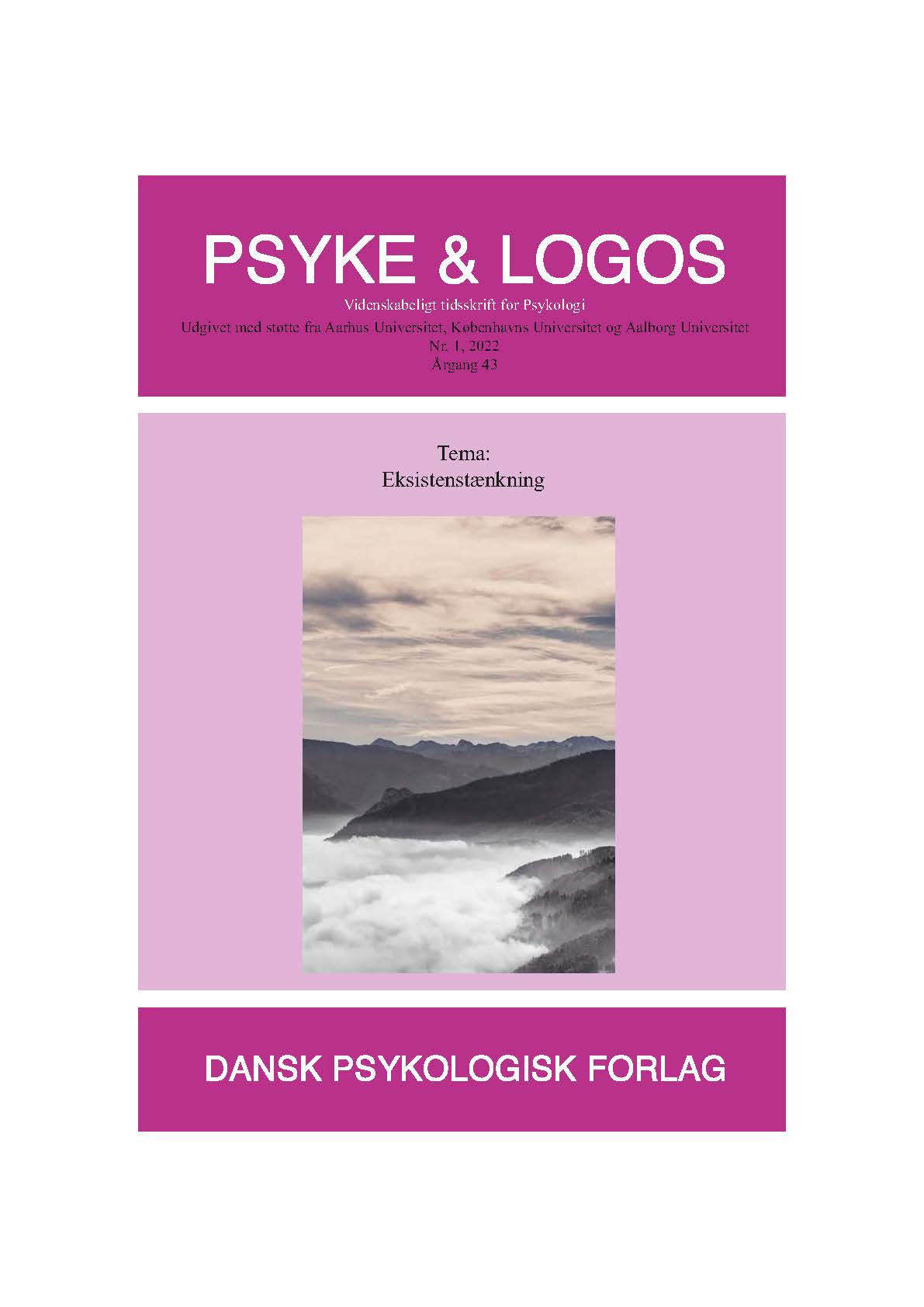Existential thinking in psychology
An introduction
DOI:
https://doi.org/10.7146/pl.v43i1.133879Keywords:
Denmark, existence, existential psychology, existential thinking in psychologyAbstract
As psychologists, we deal with people's lived lives. With how people find their way in life. We research it, we evaluate it, and we help our fellow human beings with their life development and with finding a sustainable orientation in their lives. We help them with their existence! We do, whether we focus on neuropsychological executive functions, on cognitive restructuring and narrative reframing, on the treatment of developmental trauma, doing educational psychological assessments or assist patients with somatic disorders. An existential perspective is thus relevant in psychologists' work, solely because we work with people and their life. A mental disorder, for example, is not just an appearance limited diagnosis. It is first and foremost a state of life, the existing one has to relate.Downloads
Published
2022-08-15
How to Cite
Højgaard Frydenlund, J., Jacobsen, B., Jacobsen, B., & Mathiassen, C. (2022). Existential thinking in psychology: An introduction. Psyke & Logos, 43(1), 5–10. https://doi.org/10.7146/pl.v43i1.133879
Issue
Section
Introduction
License
Ophavsret er tidsskriftets og forfatternes. Det er gældende praksis, at artikler publiceret i Psyke & Logos, som efterfølgende oversættes til andet sprog, af forfatteren frit kan publiceres i internationale tidsskrifter, dog således at det ved reference fremgår, at den oversatte artikel har et forlæg i en dansksproget version i Psyke & Logos. Artikler kan frit deles og linkes til på forsknings- og undervisningsnetværk (så som Blackboard). Link foretrækkes, fordi det giver oplysning om brug af tidsskriftets artikler.




